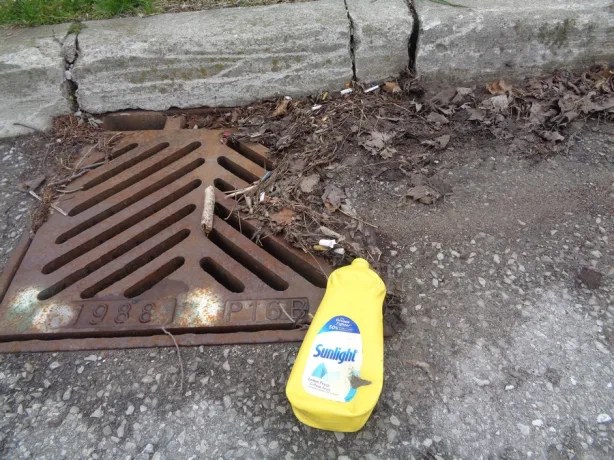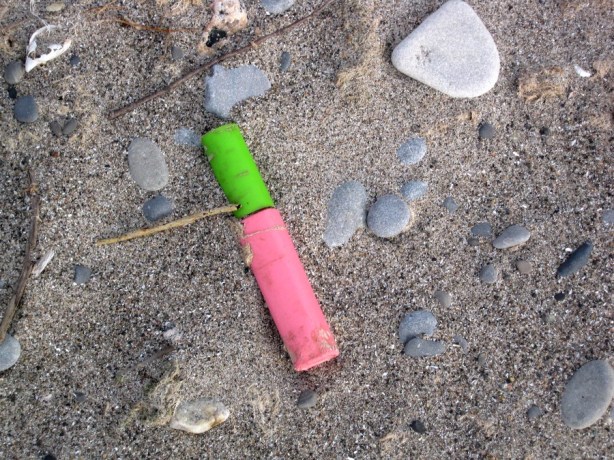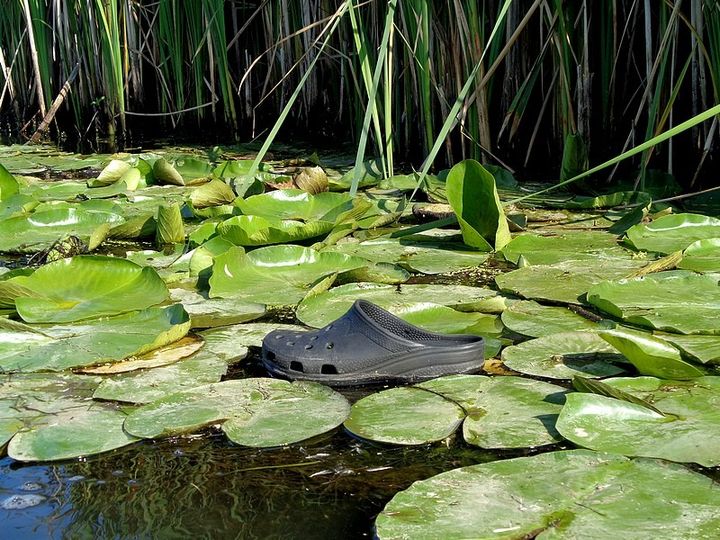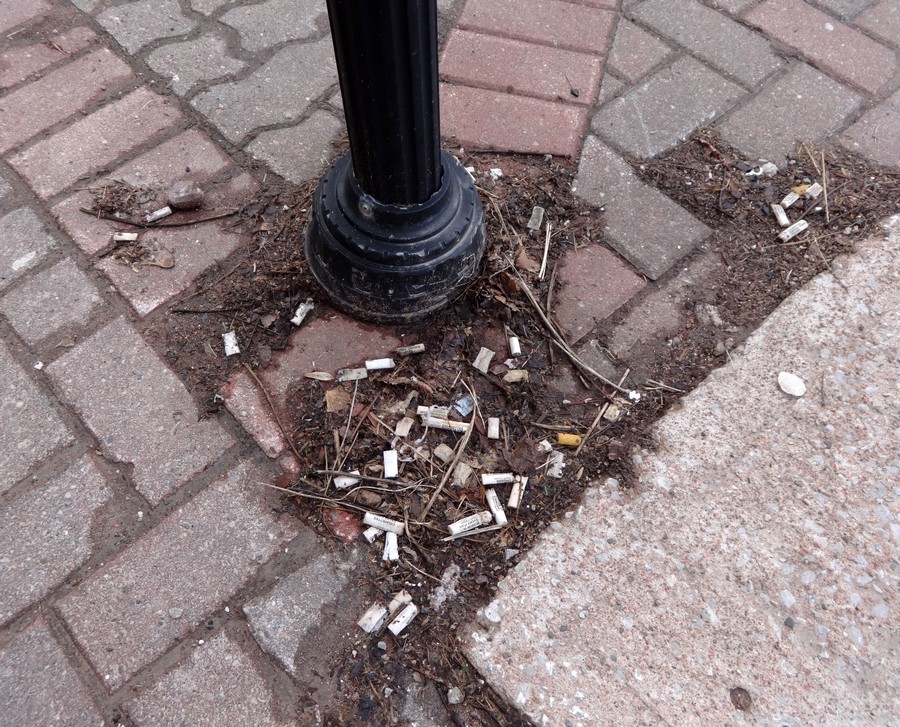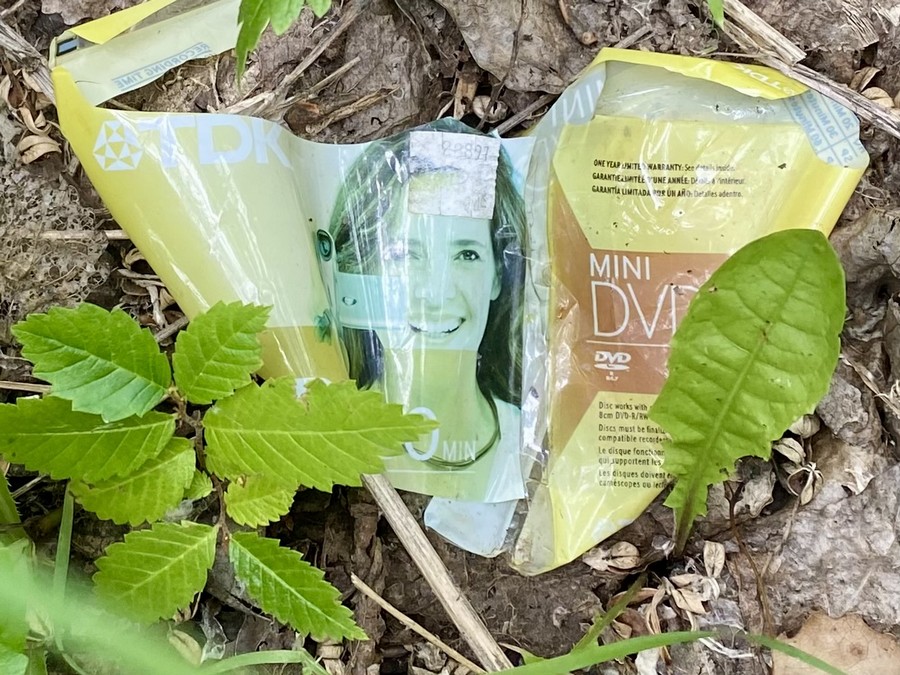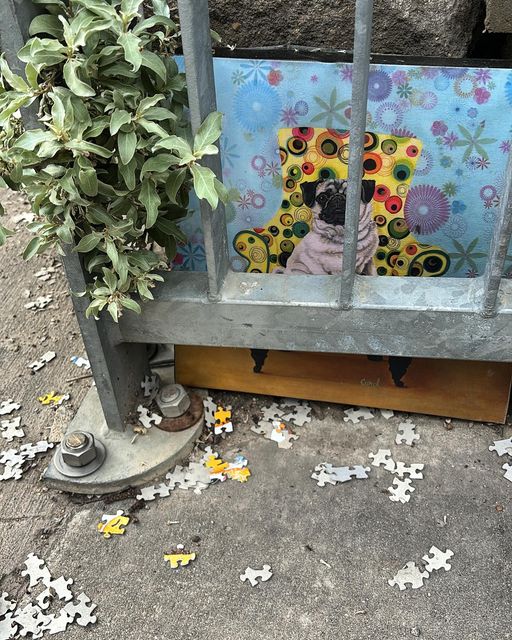I remember seeing this piece of litter on a street I often used to walk. Likely escaped from a bin on garbage day and yet there it sat and how many people had walked past and what was to become of it? Thoughts that go through my mind whenever I see litter, same thoughts that initially prompted this project. The thing that will never ever, EVER stop blowing my mind is that when I send a picture, in this case of a detergent escapee, to a writer, ‘The Future’ happens.
Thanks to Ronna Bloom, who, I’m delighted to say, has included ‘The Future’ in revised form in her most recent book, In a Riptide, in which the future, as a subject, plays a beautiful role, not least in the closing poem ‘A Full Glass’ — “A few days short of New Year’s Eve, a man stands/ on the sidewalk, bundled against the dry cold./ He holds a martini glass full of brownish liquid you hope/ is hot cider made from September’s Macintosh apples/ with a bit of ginger or lemon for brightness, though the drink/ looks a lot like the slush you’re walking on./ To the future! he says to you as you pass./ To the future! you say, holding nothing.”
Enjoy this most wonderful re-post, first published here on February 7, 2020.
And oh how I would love for whoever once owned that Sunlight to see what became of it.
I saw the icons of my generation trashed, pounded, run over.
Sunlight, Madge, we were soaking in it. That box that held our kisses
was flat. Lifestyle came undone so that life was hanging on by the grate
and style underfoot. What happened and is it everywhere?
“The future is in plastics,” said the man in The Graduate and it is.
One night in the last century, I dreamt I sat on a high wall an open book
on the ground and the sea rose. Be careful the book! I called.
The water came anyway. What is precious and who cares and how much?
To each her own footwear in the apocalypse. It’s not just the litter it’s the latter.
But some people notice. Someone took these pictures.
In Australia, fire eats the houses and the vines in California.
In Venice, someone’s couch was swept into the water, someone’s tombstone.
Tourists looted the Vuitton store and swam away with the goods.
Tom Waits is not dead yet so I ask him what am I seeing?
Misery’s the river of the soul, he says. Everybody row.
The young are out mopping because there’s no school
when there’s no school. And the old, well, it doesn’t matter how tired and dazed you are
when you’re up to your knees. All you can do is wait. The tide will turn.
Sunlight. The real thing. Until the next siren. Fire and water and so on.
Sisyphus that old trooper. Sisyphus is us.
♦
♦
Ronna Bloom is the author of eight books of poetry. Her work has been broadcast on CBC, recorded by the Canadian National Institute for the Blind, and translated into Bangla and Chinese. Her poems also appear several times in Best Canadian Poetry and have been nominated for a Pushcart Prize. Ronna has brought poetry into health care, specifically developing the Poet-in-Residence program at Sinai Health. She has collaborated with filmmakers, choreographers, musicians, and architects. Her poem, “The Future,” originally published in the litter I see project, appears in her new book In a Riptide (Brick Books 2025.) ronnabloom.com
♦
♦
BIGGEST LITTER PEEVE?
RB — Junk in the water. Seeing a tide with plastic bottles, tin cans, tires and other bits of debris coming ashore just deflates me. The endlessness of the fight… I always cut the strings off masks too as I worry for the strangling of birds.
♦
♦



